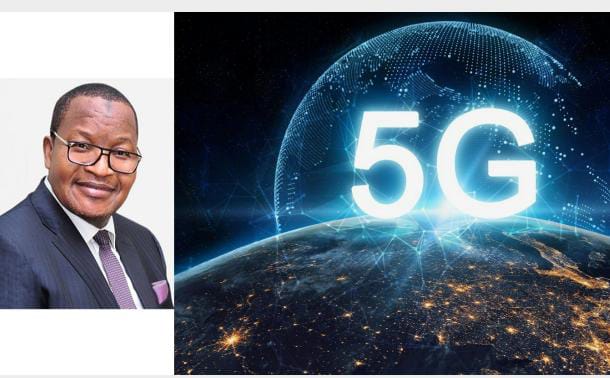TECH WORLD
NCC puts final touches on 3.5Ghz 5G spectrum auction plan
Published
4 years agoon

The Nigerian Communications Commission is finalizing plan to auction the designated spectrum for deployment of the Fifth Generation Network (5G) in Nigeria.
As operators in the country warm up to take position ahead of the auction and commercial roll out of the technology, the telecoms regulator Thursday converged stakeholders in the sector to take their inputs into the auction plan and conditions surrounding the technology.
Read Also:
At the Stakeholders Engagement Forum on the Draft Information Memorandum on Auction of 3.5Ghz Spectrum Band held by the Commission in Lagos, Umar Danbatta, the Executive Chairman of NCC, said as a world class communications regulatory agency, the action of the NCC must include inputs from all stakeholders in the industry.
He said there was need for active participation in the deliberations that would follow the licensing of the 3.5GHz Spectrum Band for the deployment of 5G services, amongst others in Nigeria.
He said the Nigerian Communications market was one of the biggest in Africa and was also the largest contributor to the Information and Communications Technology sector of the Nigerian economy.
“Nigeria has an estimated population of 214 million, with an average growth rate of 2.6 per cent annually, approximately 76.46 per cent of the population is under the age of 35.
“In line with these demographic changes, internet penetration grew from 3 per cent in 2004 to 73.82 per cent as at September 2021, and broadband penetration increased from less than 10 per cent in 2015 to 40.01 per cent in September 2021,” he said.
According to him, arising from the significant growth of broadband penetration in Nigeria, which stands at 40.01 per cent as at September 2021, it has become imperative for to evolve to the next phase of global development of the sector.
Danbatta said the 5G technology would bring substantial network improvements, including higher connection speed, mobility and capacity, as well as low-latency capabilities.
He added that in doing so, it enabled novel use cases and applications that would positively impact on different sectors of the economy and improve efforts towards achieving the Digital Economy objectives of the Federal Government.
He said the 5G technology did not only offer enhanced broadband and ultra-reliable low latency communications, it also provided massive machine type communications.
He said lots of devices would seamlessly connect and interact independently with the Internet without human intervention thus, enabling the Smart City Initiatives and making Broadband Use Cases a reality.
The EVC added that, in line with its mandate as enshrined in the Nigerian Communication Act, 2003 and our Strategic Vision Plan (SVP) 2021-2025, the Commission has committed enormous resources to ensure harmonized Spectrum is secured and released in a timely manner for present and future deployment of services that will underpin the fourth industrial revolution, including International Mobile Telecommunication (IMT-2020) services.
“We have kept ourselves abreast of developments at international fora, including ITU-R study groups to enable the allocation of strategic Spectrum to IMT services especially IMT 2020 which has been in the front burner in the last two ITU-R study cycles.
>Through the collaborative efforts of the National Frequency Management Council (NFMC) and Nigerian Communication Satellite Limited (NigComSat), the Commission was able to secure the necessary 3.4 – 3.9GHz C-band for deployment of 5G services in Nigeria. The C-band is globally accepted as the candidate of choice for 5G deployment due to its excellent propagation characteristics,” he said.
Share this:
- Click to share on X (Opens in new window) X
- Click to share on Facebook (Opens in new window) Facebook
- Click to share on WhatsApp (Opens in new window) WhatsApp
- Click to share on Pocket (Opens in new window) Pocket
- Click to share on Telegram (Opens in new window) Telegram
- Click to email a link to a friend (Opens in new window) Email
- Click to share on LinkedIn (Opens in new window) LinkedIn
You may like


NCC, CBN Introduce 30-Second Refund Rule for Failed Airtime and Data Purchases


Nigeria’s Active Telecom Subscribers Hit 173.5m as Broadband Penetration Nears 50%


Fresh $1bn Investment in Broadband Pushes Nigeria Closer to 70% Penetration Target


Infrastructure under Siege as NCC Confirms 19,384 Fibre Cuts in 8 Months


AfriTECH 5.0 Welcomes NCC, itel, Digital Realty, SKOT Communications, IXPN as Sponsors


NCC Rallies Stakeholder Support to Protect Telecom Infrastructure










